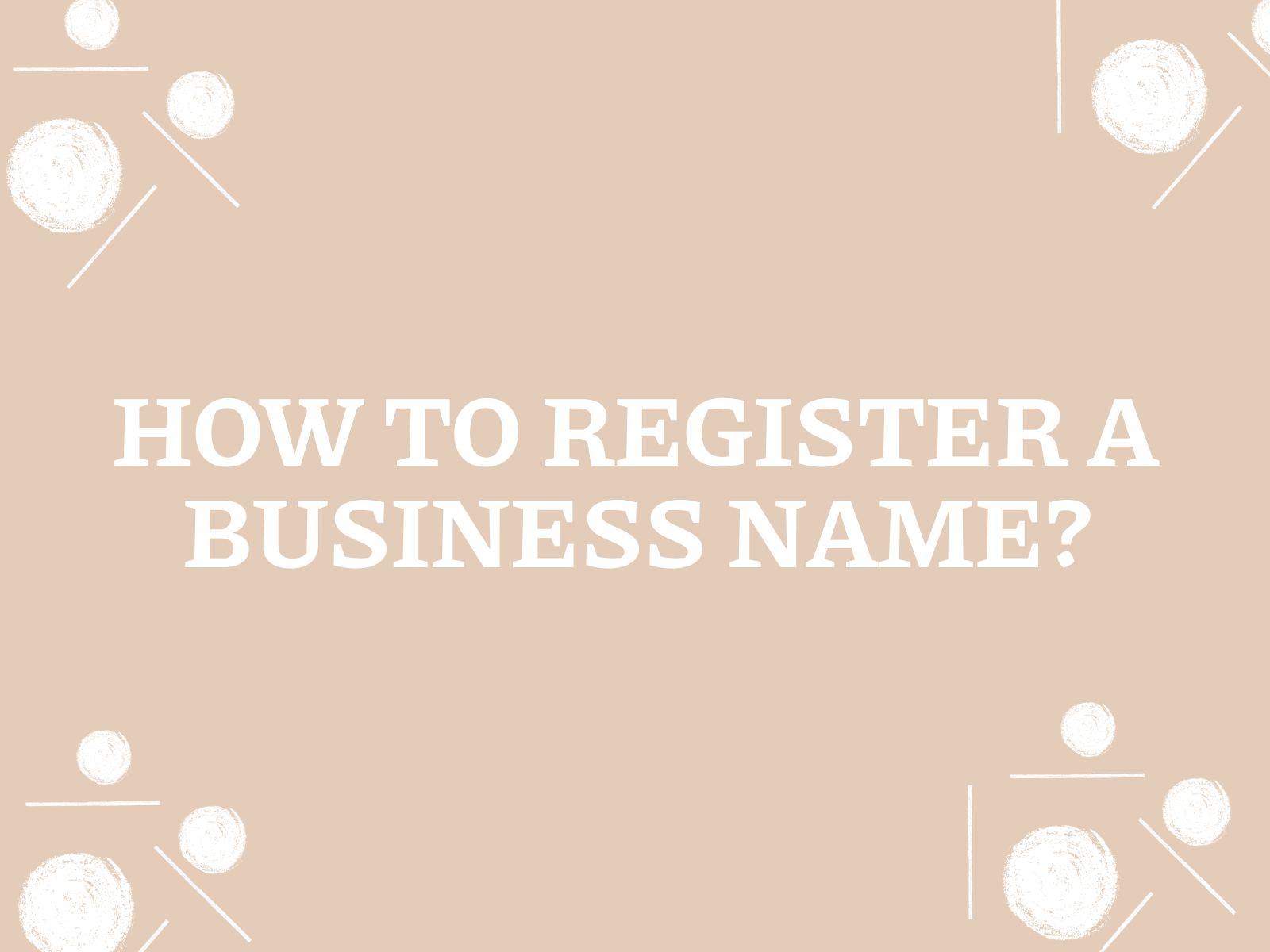Choosing a name for a new company is an important step, because it becomes the face of your business, its business card. A successful name should be unique, memorable and reflect the essence of your business. But what do you do when you have found the perfect name and someone else is already using it or, even worse, registering it as their trade mark?
This is where trademark registration comes in handy. This is the official recognition of your exclusive right to use your company’s name, logo or other designation. Trade mark registration not only protects your company from unfair competition, but also increases its prestige and value.
The process of registering a trade mark may seem complicated, but with the right information and expert support it becomes quite feasible. In this article we will review the main stages of trade mark registration in Ukraine and provide useful tips to help you protect your company’s name.
Stages of trade mark registration
Once you have chosen a name for your company and made sure it meets the legal requirements, you can move on to the trade mark registration process. This process consists of several key steps:
- Uniqueness check
Before applying for trade mark registration, you need to make sure that the name you have chosen is unique and does not infringe the rights of other trade mark owners. You can use several methods to do this:
- Search databases of registered trade marks: The Ukrainian Institute of Intellectual Property (UKRNOIVI) provides access to an online database where you can search by name, class of goods and services, etc.
- Use of online services: there are various online platforms that allow you to check the uniqueness of a name and its availability for registration as a trade mark.
- Contacting a lawyer: the most reliable way to check uniqueness is to contact a lawyer who specialises in intellectual property. The lawyer will conduct a professional search, take into account all legal nuances and provide you with qualified advice.
It is important to remember: even if you did not find a match during the search, it does not guarantee successful registration. The final decision is made by UKRNOIVI after the examination.
- Preparation and submission of the application for participation in the competition
After a successful uniqueness check, the next step is to prepare and submit an application for TM registration. This stage also has its own peculiarities:
- Defining Classes of Goods and Services: Trademarks are registered for specific classes of goods and services. It is necessary to determine which classes your company’s activities fall into in order to ensure adequate protection.
- Preparation of the application: the application for registration must be prepared in accordance with the requirements of UKRNOIVI and contain all necessary information about the applicant, trade mark and classes of goods/services.
- Applying: the application can be submitted online via the UKRNOIVI website or in person in paper form.
- Examination of the application
Once an application is filed, UKRNOIVI conducts an examination of the application, which can last from several months to a year. The examination includes checking for compliance with legal requirements, absence of similar trade marks and assessment of distinctiveness.
In case of discrepancies or violations, UKRNOVI may decide to refuse to register the trade mark. In such a case, it is important to consult a lawyer to analyse the reasons for the refusal and determine further actions.
Legal advice at this stage can be crucial, as a solicitor can help you appeal against UKRNOIVI’s decision or make the necessary changes to your application.
Protection of the company name after incorporation
If your trade mark has been successfully registered, we congratulate you! This means that you have obtained the exclusive right to use it and protection from unfair competition. However, registration is only the first step. It is important to take further steps to effectively protect your company name:
Monitoring the use of the trade mark.
Constantly monitor the market and identify possible illegal use of your trade mark. This could be:
- Use of similar names or logos by other companies.
- Selling counterfeit products using your trade mark.
- Inappropriate use of your trade mark in advertising or marketing materials.
Various tools can be used for monitoring: search engines, online platforms, specialised services.
Actions in case of violations.
If you find that your trade mark rights have been infringed, appropriate action must be taken:
- Talking to the infringer: the first step is to try to resolve the issue amicably by contacting the infringer to demand that they stop using your trade mark illegally.
- Court settlement: If contacting the offender is unsuccessful, a pre-trial settlement of the dispute can be considered, for example through negotiation or mediation.
- Judicial defence: in case of serious violations or lack of cooperation by the violator, it is necessary to go to court to defend one’s rights.
It is important to remember: protecting trade mark rights is a complex process that requires knowledge of the law and experience. Legal support of a qualified lawyer will help you choose an effective defence strategy and achieve a positive result.
Conclusions
It can be difficult to understand all the legal intricacies of trade mark registration and intellectual property protection on your own. That is why it is important to have a reliable partner who will provide you with legal assistance and legal support at all stages.
Polikarpov Law Firm has many years of experience in intellectual property and offers a wide range of services:
- Advice on trade mark registration and trade secret protection.
- Checking for brand uniqueness.
- Preparing and filing an application for registration of a trade mark.
- Supporting the examination of the application and appealing against UKRNOIVI decisions.
- Defending trade mark rights in court.
- Development and implementation of a trade secret protection system.
Contact Polikarpov Law Firm and we will help you to reliably protect your company name and intellectual property!
How long does the process of registering a business name take?
The process of registering a business name can take a varying amount of time depending on a number of factors, including jurisdiction, workload of the registration authorities, the type of business chosen and the specifics of the name. In general, the process can take anywhere from 18 months to 22 months.
- Preparation of documents: first, the necessary documents must be prepared, including the application for registration of the business name and other documents required by the relevant registration authority.
- <Name availability check: the registration authority will check the availability of the chosen business name to ensure that it does not overlap with already registered names of other companies.
- Application processing: the application will then be reviewed by the registration authority, which may take some time depending on their current workload and application processing processes.
- Approval and registration: after reviewing the application and ensuring that it meets the requirements, the registration authority will approve the chosen business name and register it.
- Receipt of documents: once the business registration process is complete, official documents confirming the registration must be obtained, which can also take some time.
In general, the process of registering a business name usually takes between 18 months and 22 months. However, this is an estimate and the actual time may vary depending on the specific circumstances and jurisdiction.
Can I register a business name that is used in another country?
Yes, you can register your business name that is used in another country, but this may require additional steps and compliance with certain rules and procedures. It is important to note that the rules for registering business names may vary depending on the country and its legislation.
Here are some key steps and points to consider:
- Check the availability of the name: before registering a business name, check that it is available for use in the chosen country. Checking availability may include searching the register of companies or organisations and checking existing trade marks.
- Compliance with legal requirements: Certain documents and information may be required to register a business name, such as the company’s articles of incorporation and other documents certifying your eligibility to use the name.
- Avoiding intellectual property infringement: it is important to ensure that the use of the chosen name does not infringe trade mark rights or other intellectual property rights held by other entities.
- Consultation with a lawyer: it is recommended to consult with a local lawyer or intellectual property specialist who can provide specific advice and assistance on how to register a business name in another country.
In general, while it is possible to register a business name used in another country, it may require careful consideration of the relevant legal requirements and professional advice to complete the process successfully.
Can I register a business name under my own name?
Yes, you can register your business name under your own name if you want to use your personal name as part of the brand or name of your business. However, there are several factors to consider:
- Registrations and Requirements: before registering a business under your name, make sure it is permitted under local laws and requirements. Some jurisdictions may have restrictions or requirements regarding the use of personal names in business.
- Uniqueness of name: ensure that your name does not conflict with other registered business names or trade marks. This may require research into the availability of the name.
- Professional image: consider how using your personal name in your business name will affect your professional image and the perception of your brand. Some entrepreneurs choose this route to emphasise a personal connection to the business, while others may prefer a more abstract name.
- Legal Aspects: before registering, be sure to consult with a legal advisor or business law specialist to understand all the legal aspects of using a personal name in business and to ensure that your brand is legally protected.
So, you can register a business name under your name, but it is important to consider all the above-mentioned aspects and requirements to do it properly and efficiently.
What is the difference between registering a business name and registering a trade mark?
The difference between business name registration and trade mark registration lies in their purpose, scope and legal implications. Here is more detail:
- Purpose:
- Registration of business name: serves to legally define the identity of your business in official documents and to establish your business as a legal entity. This allows you to legalise your business and establish its legal status.
- Trademark registration: serves to protect the uniqueness and distinctiveness of your product or service in the market. It gives you exclusive rights to use and reproduce your trade mark in connection with your product or service.
- Coverage:
- Business Name Registration: covers the use of your business name in all aspects of your business, including advertising, official documentation, contacts and more.
- Trademark Registration: covers the use of your trade mark only in relation to the specific good or service for which it is registered. That is, this registration protects your mark only in the context of the good or service for which it was registered.
- Legal implications:
- Registration of a business name: gives you legal status as a business and allows you to use the name for all business purposes in accordance with local laws.
- Trademark registration: gives you exclusive rights to use and protect the trademark from unlawful use by others in trade and marketing.
So, while both types of registration are important for business, they have different purposes and implications and may apply to different aspects of your business.






